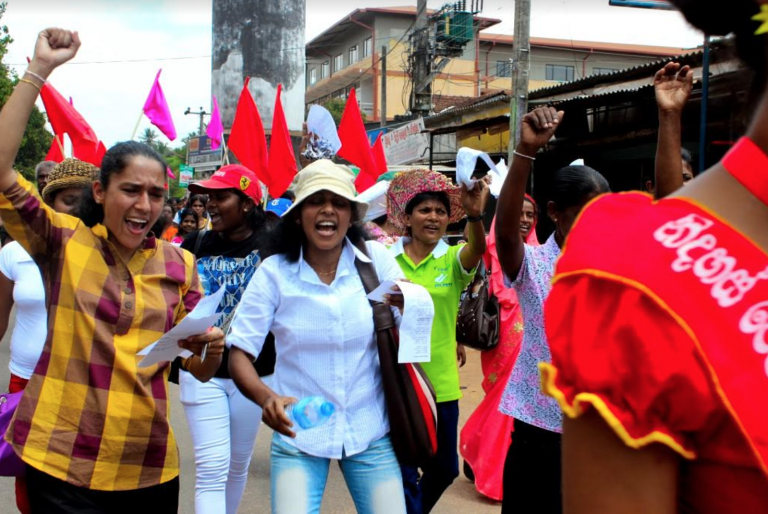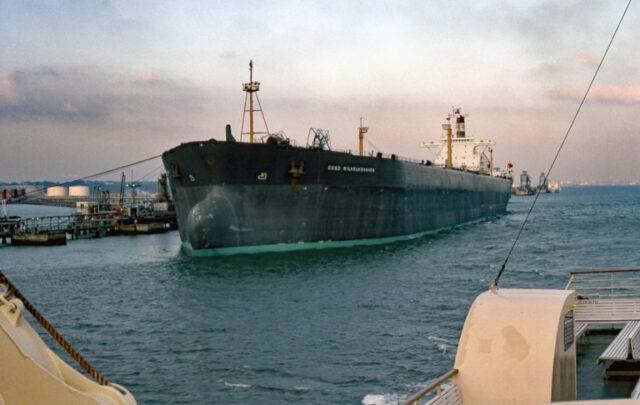International Women’s Day had radical roots: at the turn of the 20th century, thousands of women came together to protest dismal working conditions, long hours, and poverty pay. Today, women everywhere, especially in the global South are still fighting this uphill battle, lined with exploitation and inequality.
The theme for this year’s International Women’s Day is ‘Balance for Better.’ Balance is not a women’s issue, it’s a business issue. Calling for representation in the boardroom and gender balance in the workplace is something to be celebrated – but it’s a radical shift in power dynamic that is most needed. Without challenging the structural power that lies in the boardroom and perpetuates deepening inequality for women, Balance for Better does little to address the cycle of extreme poverty, discrimination, and violence women continue to face, including in their places of work.
Women garment workers throughout Asia remain at the bottom of the supply chain. They are consistently being denied their basic human rights: working up to 16 hours a day, 7 days a week, while receiving poverty pay. The dangerous factory conditions women are working in often results in injury and even death. In May, we’ll commemorate the six year anniversary of the Rana Plaza factory collapse in Bangladesh, which killed over 1,100 people.
The Bangladesh Accord, signed by global retailers and brands in the aftermath of the collapse in an aim to protect worker safety, is now at an imminent risk of ending. Earlier this year, thousands of women in Bangladesh, who make clothes for big name brands like H&M and ASDA, came together on the streets to demand a living wage and safer working conditions. They were met with violent repression. Police used tear gas, rubber bullets and water cannons, resulting in thousands arrested, over 50 women injured and 1 killed.
All the while, we are seeing UK companies promoting female empowerment through International Women’s Day while systematically exploiting women throughout the global South and enabling this repression. Brands have a responsibility to the workers who make their clothes, yet factories used by high street retailers in the UK and elsewhere are consistently denying women the right to collectively organize and demand their rights –the political message International Women’s Day began with – and appropriating empowerment and women’s liberation through marketing messages, clothing sales, and promotions.
Consistent exploitation of women is evident in every sector, not just in manufacturing. Extractive industries like mining – responsible for fossil fuel extraction and a considerable proportion of global emissions – are continuing to steal resources and wealth from local communities across Latin America, while destroying ecosystems and land. Women are on the frontline, defending their homes, communities, and families against harassment, intimidation, and persistent human rights violations at the hands of multinational corporations. In fact, mining is the second deadliest industry for environmental human rights defenders. Just a few days ago marked the anniversary of the brutal murder of human rights defender Berta Caceres: an indigenous woman who led a successful grassroots struggle to stop a hydroelectric dam project that threatened her community in Honduras. She was shot dead in her home three years ago. Although the subsequent trial was entangled with smokescreens, it lead to 7 convictions, making it clear the order came from company backing the project. Those behind her murder sought to silence her and her struggle, but her assassination has sparked a global movement to defend women human rights defenders.
Women face violence, exploitation and commodification in every sphere of life: in work, at home, and in conflict. It’s more than fighting for representation in the workplace; it needs a transformation of power relations. It comes as no surprise than that as we celebrate the advancement of women’s rights, we ready ourselves for the backlash that comes with it, there’s a clear political shift and pushback to the advancement of gender equality in countries all over the world – so much so that over 30 female world leaders recently called for a fightback against the erosion of women’s rights. Far right extremism has created a fertile ground for rising inequality, discrimination, and violence against women. Even here in the UK, we boast the highest number of sexually violent crimes in Europe. Islamophobic attacks, already at unprecedented levels, increased 26 percent in 2017 alone and predominantly target Muslim women.
But against powerful odds, women across the world are on the frontlines for social justice and resisting oppression. In the manufacturing industry, the biggest victories in factories have been fought and won by workers themselves. Our partner in Sri Lanka, workers’ organisation FTZ &GSEU will be holding a joint march on Friday, celebrating the hundreds of women currently on strike from manufacturing company ATG Ceylon, demanding an end to the toxic environment of intimidation, discrimination, and unjust dismissals.
War on Want partner in South Africa, Amadiba Crisis Committee, recently won a landmark high court victory, fronted by tireless woman human rights defender, Nonhle Mbuthuma. They were granted the right to say no to destructive mining projects on their land from an Australian corporation, which they have been resisting for over 15 years.
And we continue to stand with our partners in Latin America such as the Wayuu Women’s Force – an indigenous group defending their land from Cerrejón, Colombia’s largest open-cast coal mine. They recently came to London to highlight the human rights and environmental abuses their communities have suffered at the hands of giant companies. This is a fight for their lives, and they won’t yield to multinational corporations.





